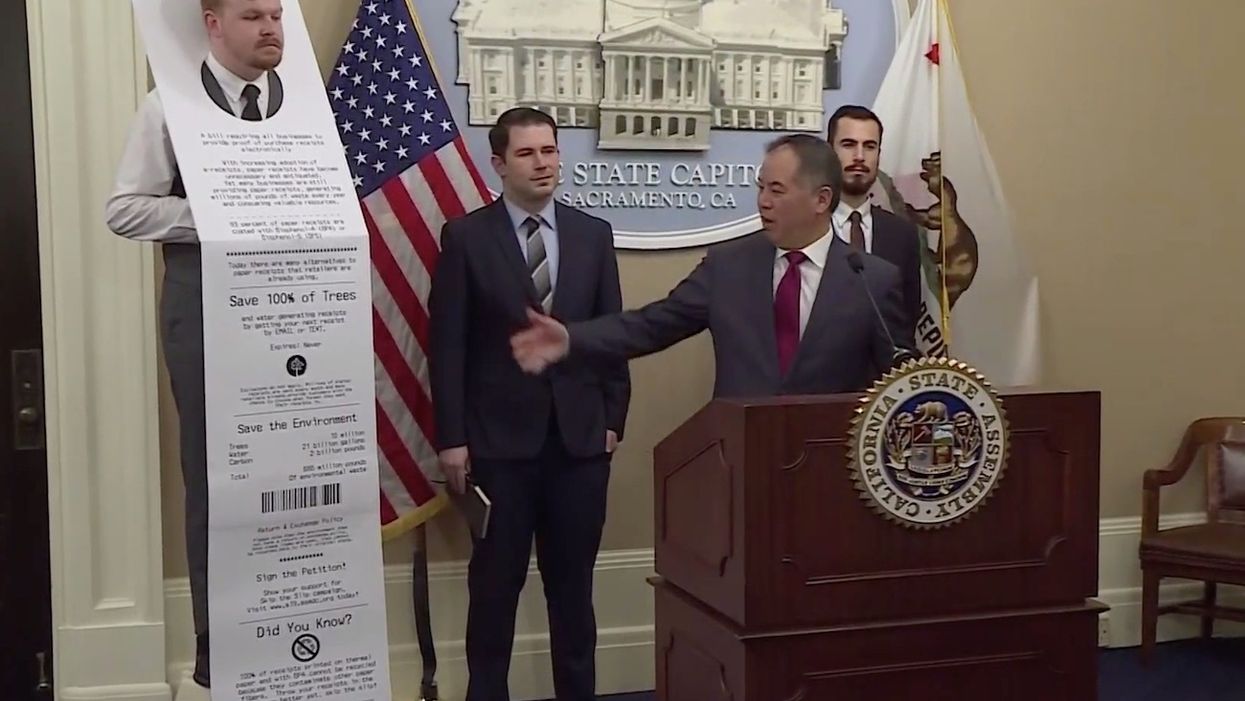
Image source: KPIX-TV video screenshot

'Skip the Slip' would require businesses to issue electronic receipts by 2022
A California lawmaker has proposed a bill that would require businesses to issue electronic receipts instead of paper receipts.
San Francisco assembly member Phil Ting (D) introduced the bill, dubbed "Skip the Slip," at a news conference Tuesday, KPIX-TV reported. Standing next to Ting, a staffer was draped in an over-sized receipt that listed the reasons for the bill.
"Most of us don't need a physical receipt for every transaction. It doesn't make sense to kill so many trees and produce 12 billion pounds of carbon emissions, the equivalent of one million cars on the road, to make something we don't often need," Ting said in a statement to KPIX.
The measure, if approved, would call for all businesses to provide receipts by text or email by 2022, unless a customer specifically asks for a paper copy.
Ting cited a study by Green America, an environmental group, which claims that as many as 10 million trees and 21 billion gallons of water are used annually to produce receipts in the U.S.
He also pointed out that most paper receipts contain chemicals such as bisphenol-A (BPA) and bisphenol-S (BPS). Both chemicals are also found in many commonly used plastics.
The Bay Area lawmaker added that paper receipts cannot be recycled.
"Guess what? They [receipts] can't be recycled because of the BPA," Ting told reporters. "It's common-sense legislation.
"It's really putting the power back on the consumers by saying, 'Hey, if you want the paper you can ask for it,'" he continued. "But why force you take the paper?"
Some scientists believe exposure to BPA can cause negative health effects.
"Exposure to BPA is a concern because of possible health effects of BPA on the brain, behavior and prostate gland of fetuses, infants and children," according to the Mayo Clinic. "Additional research suggests a possible link between BPA and increased blood pressure."
The controversy prompted the Food and Drug Administration to ban BPA and BPS from plastic baby bottles and sippy cups in 2012. The following year, it was banned from use in infant formula packaging.
However, the FDA still claims that BPA is safe at current levels of exposure.
"Based on FDA's ongoing safety review of scientific evidence, the available information continues to support the safety of BPA for the currently approved uses in food containers and packaging," according to the FDA website.
If passed, businesses that fail to comply would face fines up to $300 per year, according to the bill.